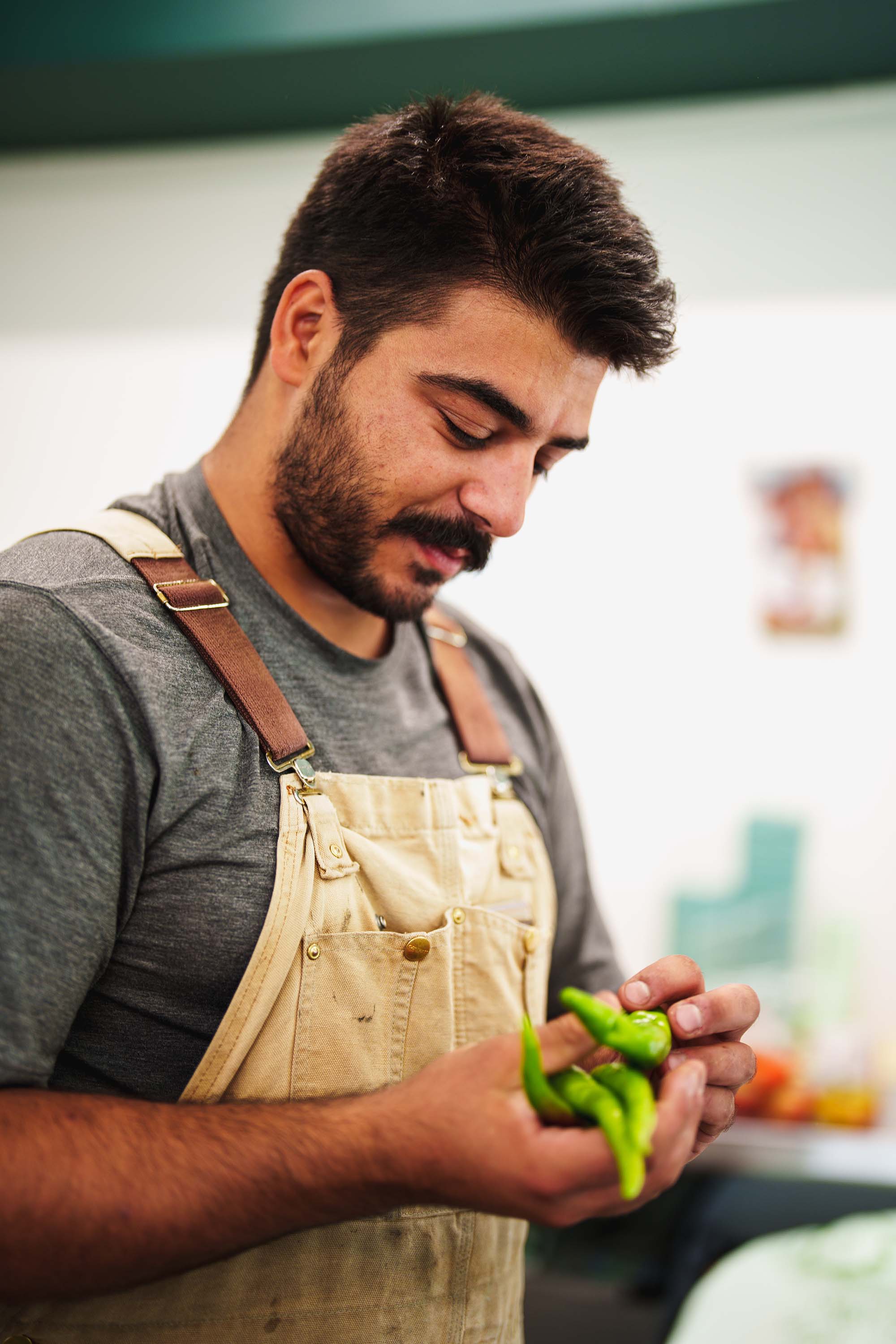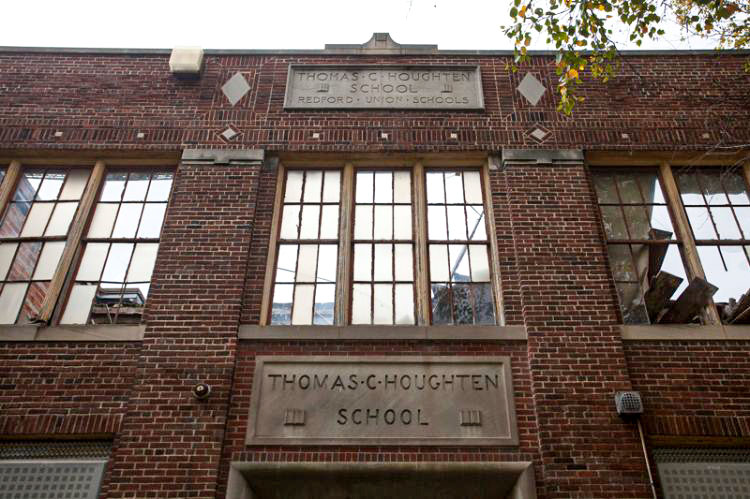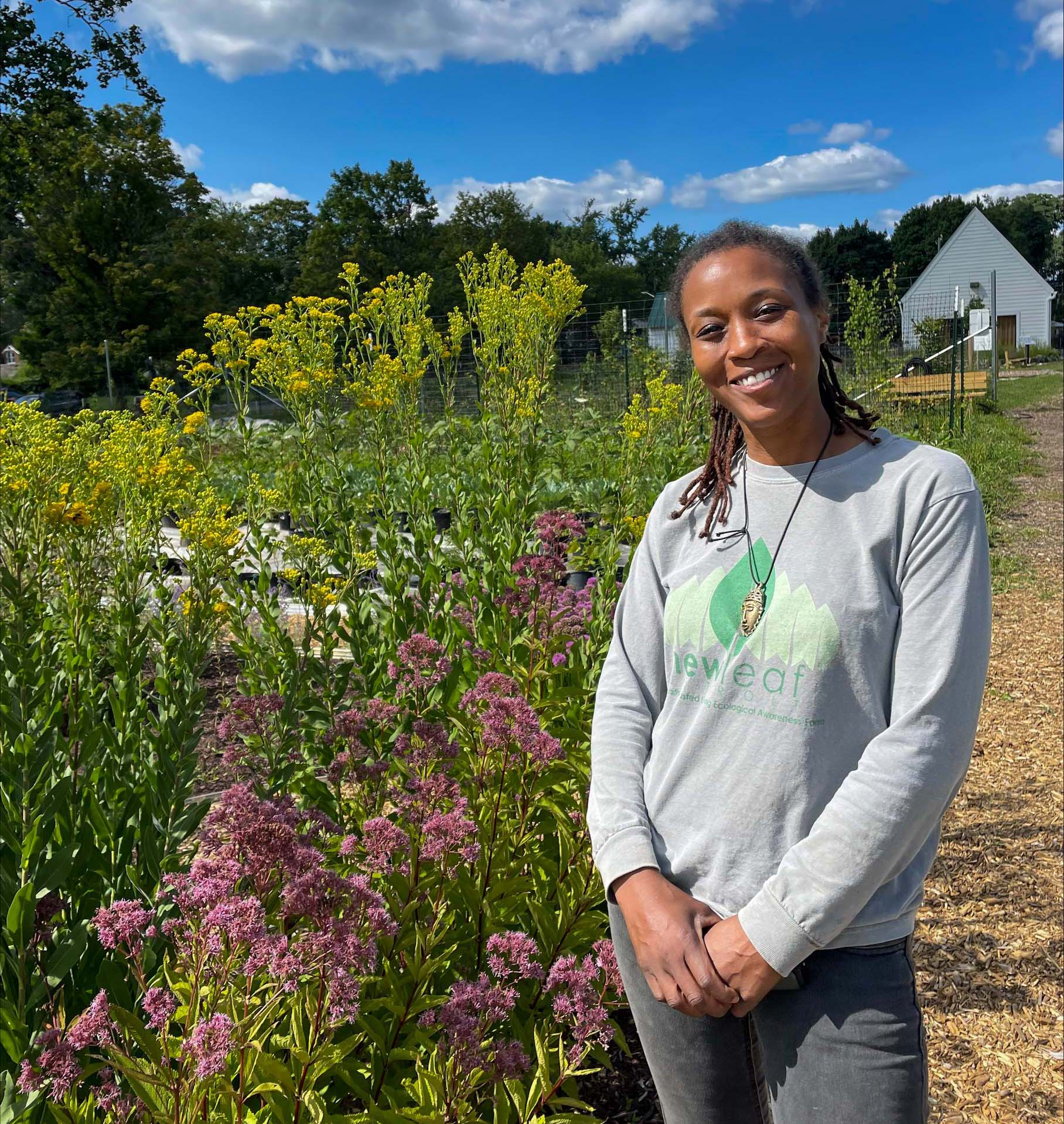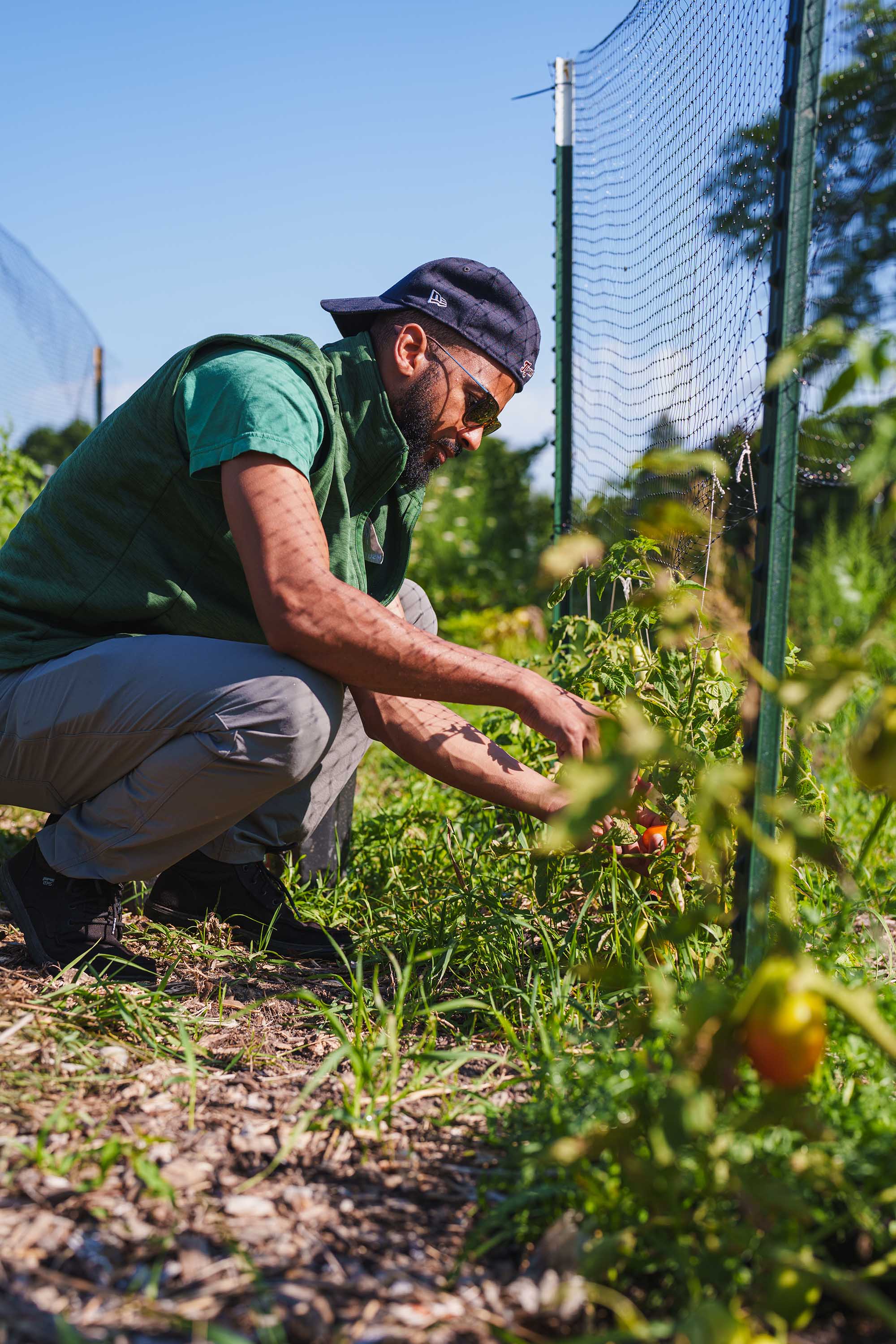A former volunteer and site partner, Stathis Pauls officially joined the DPFLI staff in 2022 after nearly a decade of experience working in urban agriculture and farmers markets. As one of the site’s two full-time employees, he and Edwards manage the day-to-day operations as well as coordinating grant applications, managing volunteers, developing programming, planning events, directing outreach initiatives and more.

Stathis Pauls tends to peppers from a harvest. Photo by Jacob Templin-Fulton.
Pauls does not believe in destiny, but he knows he is meant to grow and share food. A descendent of a long line of farmers from Greece, Pauls thinks about his great-aunt and uncle every time he harvests peppers.
“Everybody loves a good pepper — sweet, spicy, it doesn’t matter,” says Pauls. “But there’s a story for me. My great-uncle died when I was relatively young. After that, whenever I’d visit my great-aunt, she’d say, ‘Oh, your uncle visited me in my dream last night and we were picking peppers together.’ I still choke up thinking about it, especially when I’m harvesting and smell the peppers.”
This emotional connection to the crops he grows influences the way Pauls views food. He believes in food not as a commodity but as a human right and an embodiment of shared humanity. A fundamental principle of the DPFLI is that what they grow is freely available to the public. Intentionally, the gates to the site are never locked, and residents are encouraged to take what they need from the edible landscape.
“We tell people all the time, come here. Be respectful, be kind, but this space is always open. We want people to feel comfortable here.” — Stathis Pauls, MSU DPFLI
About twice a month during the growing season, the DPFLI donates fresh seasonal produce to the Brightmoor Connection Food Pantry, a client-centered nonprofit organization addressing food insecurity in the Brightmoor neighborhood. More than 30% of Brightmoor residents live below the poverty line, double the rate of the wider metro Detroit area. The Rev. Roslyn Bouier, executive director of the Brightmoor Connection Food Pantry, says that in an area frequently described as a food desert, the DPFLI is helping residents take control over their food sources.












